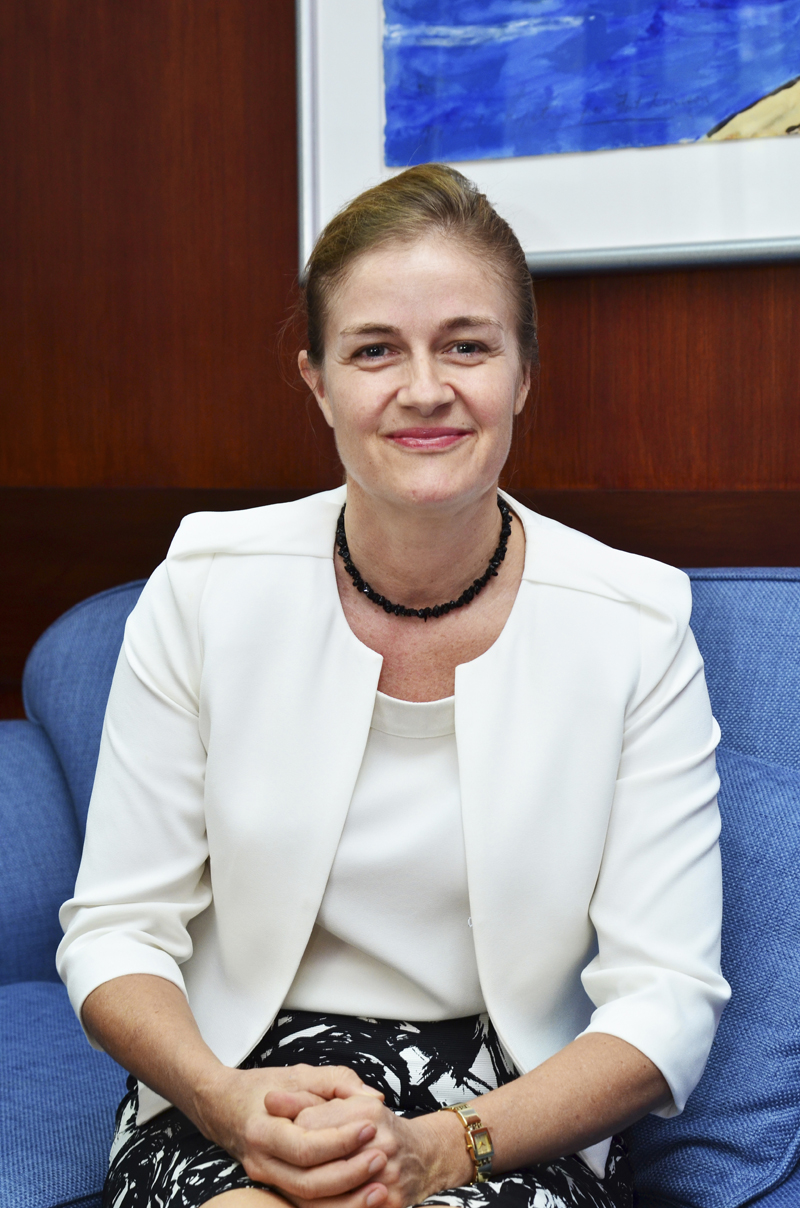Susan Coles : Australia’s economic diplomacy: engaging with the Indian Ocean, Africa and SMEs of the region
Share

I’ve now spent three years as High Commissioner to Mauritius, to the Seychelles and as Ambassador to Madagascar and the Union of the Comoros, covering the four countries from our office here in Port Louis. In that time, I have developed a sense of the commercial opportunities and priorities for Australia in this part of the world, and reached an understanding of what it is to bring ‘economic diplomacy’ to bear in these relationships.
When our then new Foreign Minister Julie Bishop came to office in late 2013, it coincided with my own preparations to begin my posting here as Head of Mission. As our Foreign Minister comes from Perth, on the edge of the Indian Ocean, she always had a strong focus and instinct to “look West” for Australia’s new frontiers and opportunities, for which her priorities and new agenda dovetailed perfectly with my own, for this assignment.
Minister Bishop quickly articulated her vision of economic diplomacy, instructing her ambassadors and overseas network to move beyond traditional diplomacy in areas such as bilateral relations, multilateral institutions and political reporting. These all remain essential activities; but she also wanted her ambassadors to be actively seeking out and developing new markets and new commercial opportunities, particularly on less well travelled paths around the Indian Ocean Islands and across Africa. For me, this has meant focusing on pillars such as the ocean economy, renewable energy, marketing Australia’s expertise and innovative technologies in relation to climate change, coastal zone management and – in Madagascar, – around the mining and agro-industry sectors.
Economic diplomacy has also meant my staff and I now work even more closely with other Australian organisations such as our Chambers of Commerce and Industry, Austrade, our Export Finance Corporation and the trade arms of our own, and our host Governments.
In our host countries, as diplomats pursuing economic diplomacy, we now work much more in partnership with bodies such as Enterprise Mauritius, Business Mauritius, the Board of Investment and the Mauritius Chamber of Commerce and Industry.
Part of my role is to provide Australian businesses with in-depth knowledge on these countries, to help them make sense of the market opportunities, the business environment, meet the right contacts and promote their products and services.
We understand the potential of Africa. Africa has a population of 1.2 billion, including a sizeable and rapidly growing middle class. We have – conservatively – 30 to 40 billion U.S. dollars already invested in Africa. Two hundred Australian stock exchange companies invest in projects in about 40 countries. So our contribution, our presence and our footprint in Africa are considerable. We also have trade of around $90 billion and by the time we add in our bilateral, multilateral and education assistance, that’s another half a billion dollars.
Australian companies are also realising the potential for using Mauritius as a stepping stone to Africa and not just in terms of opportunities for our own nationals and their companies, but also in terms of capacity building among local small and medium enterprises (SMEs) and businesses, value-adding through training and business education offered by Australian institutions and local partners.
In the last month, I had the satisfaction of bringing together these three strands – economic diplomacy, engagement with Africa and supporting SME engagement, when we funded Australian experts to deliver a two-week course for Indian Ocean and African SMEs, partnering with the MCCI Business School. The course took a practical look at free trade agreements related to the Southern African Development Community, the Common Market for Eastern and Southern Africa, the East African Community and the African Growth and Opportunity Act. The objective was to help SMEs understand and maximise the commercial connectivity that being open to trade with your neighbours can bring.
The Mauritian Government has been supporting SMEs as well with new financing mechanisms, loan schemes and training. The Government’s African vision sees that it is essential for SMEs to become part of regional value chains and export to the region.
Besides Government support, I have been impressed with the peer-to-peer support offered by dynamic organisations such as the Association mauricienne des femmes chefs d’entreprises. The embassy has funded their coaching and mentoring program across the Indian Ocean, supporting women-owned SMEs to become part of regional value chains and explore exporting to the region and beyond. Women entrepreneurs such as Aline Wong, and Marie-France Chamary are taking a lead in regional connectivity. This also empowers women in the island economies, gender empowerment being another cause close to my heart.









